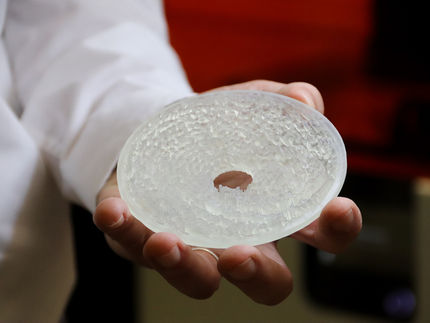ExonHit presents promising first patient results for EHT 0202, its Alzheimer’s candidate drug
Advertisement
Top-line Phase IIa clinical data demonstrate that EHT 0202, ExonHit’s lead candidate for the treatment of Alzheimer’s disease, is safe and generally well tolerated in patients and that it could potentially enhance cognition in Alzheimer’s disease patients. These first EHT 0202 results in patients were presented in Florence, Italy, at the 13th Congress of the European Federation of Neurological Societies. Further study details will be disclosed at the 2nd Conference of clinical trials on Alzheimer Disease in Las Vegas, at the end of October.
“EHT 0202 has an original mechanism of action with potential disease-modifying and symptomatic properties. The Phase IIa safety results and the potential efficacy signals observed in Alzheimer patients support advancing EHT 0202 into later stage clinical development to collect further evidence of safety and efficacy in a larger number of patients and over a longer time period,” stated Professor Bruno Vellas, M.D., the principal investigator. “There is a high unmet need for new Alzheimer treatments with procognitive and neuroprotective properties.”
Data analysis showed that EHT 0202 is safe at both tested doses (40 and 80 mg twice a day) and generally well tolerated. The most frequent adverse events were mainly related to the central nervous system-acting nature of EHT 0202 and were dose-dependent. There were no specific gastrointestinal, cardiovascular or biological adverse events in the treated groups versus placebo suggesting the absence of clinical interaction of EHT 0202 with acetylcholinesterase inhibitors. Study withdrawals related to adverse events happened mostly during the first 6 weeks of treatment and all were due to different causes.
Encouraging signs of cognitive improvement, as measured by ADAS-Cog, the gold standard test for cognition, were seen in EHT 0202 treated patients. These results build on earlier observations using EHT 0202 in animal models of Alzheimer’s disease. It was also observed in some assessments including ADAS-Cog that the ApoE4 positive subpopulation (patients with one or two of the ApoE4 alleles in their genes) tends to respond better to EHT 0202 treatment than patients with no ApoE4 allele in their genes.


























































